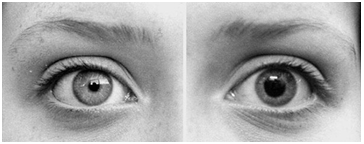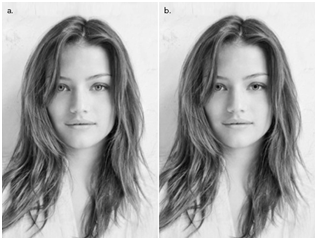The answer lies in a beautiful secret of nonverbal behavior…
Well! Pupils of eyes appear like two black spots at the centre-positions of the eyes. In bright light, their size decreases and when the light decreases their size increases to almost four times.

But you know what? They are equally affected by emotional changes. Yes! They dilate (expand) when we see something that excites us.
Now, there is another important piece of fact here. We like to look at people whose pupils are dilated. It is because subconsciously we feel that as their pupils are dilated so they must be finding us likable. And who doesn’t like to be liked? J
Well! This phenomenon is at its best in case of lovers.

Let’s see how. In a couple, when first person looks into second’s eyes and finds second’s pupils dilating, then the first feels liked and likable. This makes first’s pupils also dilate. Now, looking at first’s pupils dilating, the second person also goes through the same cycle. And this cycle continues…
So now you know why there are lines like “Look into my eyes and you will see what you mean to me” or “When I look into your eyes, I lose myself” and numerous others…
Yes! That’s exactly why ‘people in love’ tend to keep looking into each other’s eyes. It is all about the ‘dilated pupils’.
I know that now most of you must be thinking that if dilation of pupils conveys so much then is it possible to observe that with naked eyes? Well! Though it seems difficult but the fact is each one of us is programmed to subconsciously register it. It is only about honing it.
Okay, without thinking too much, just tell me which of the two pictures do you find more appealing?

Now, you would be surprised to know that if you would show these pictures to 100 people, around 70 are likely to choose ‘b’. And the only difference is that in ‘b’, the pupils are dilated. J
………………
They say “Eyes are windows to the soul”. Well! One thing is for sure that ‘Eyes are windows to one’s mind”. All we need is the knowledge and skill of ‘Social Intelligence’ to see through them…
Dr. Sandeep Atre, Socialigence
